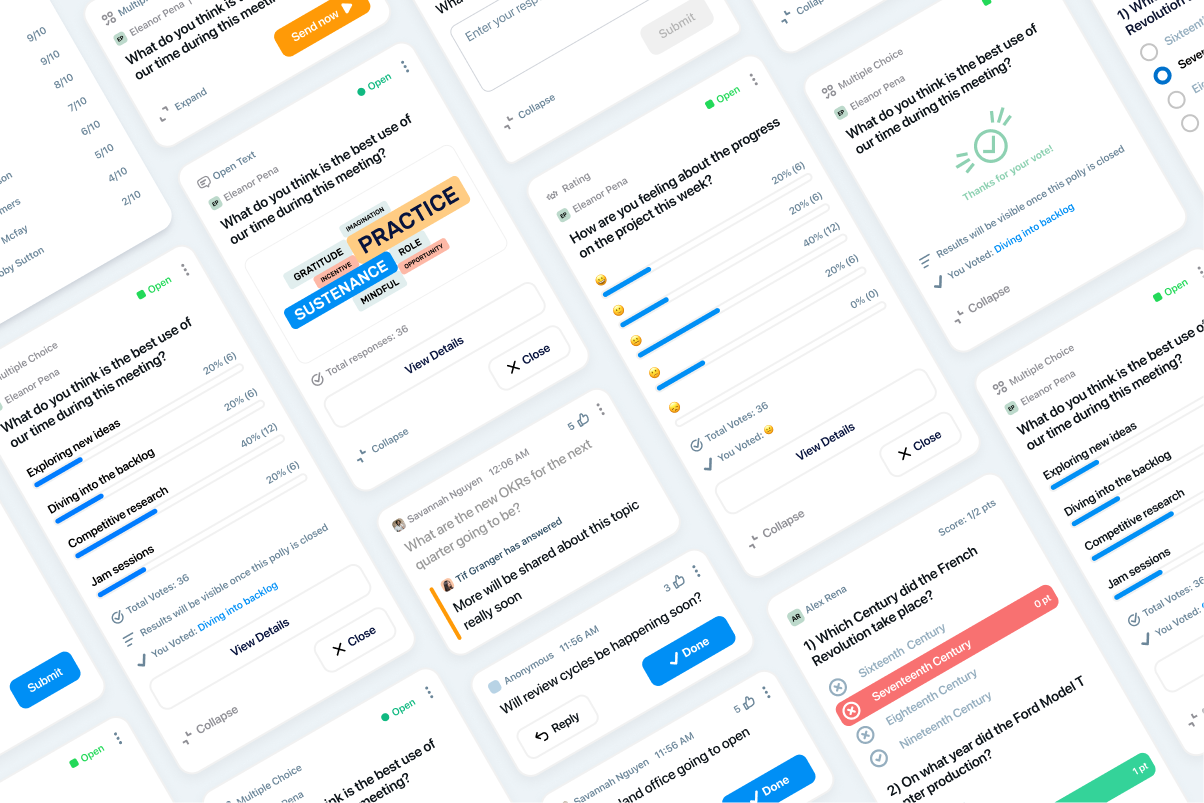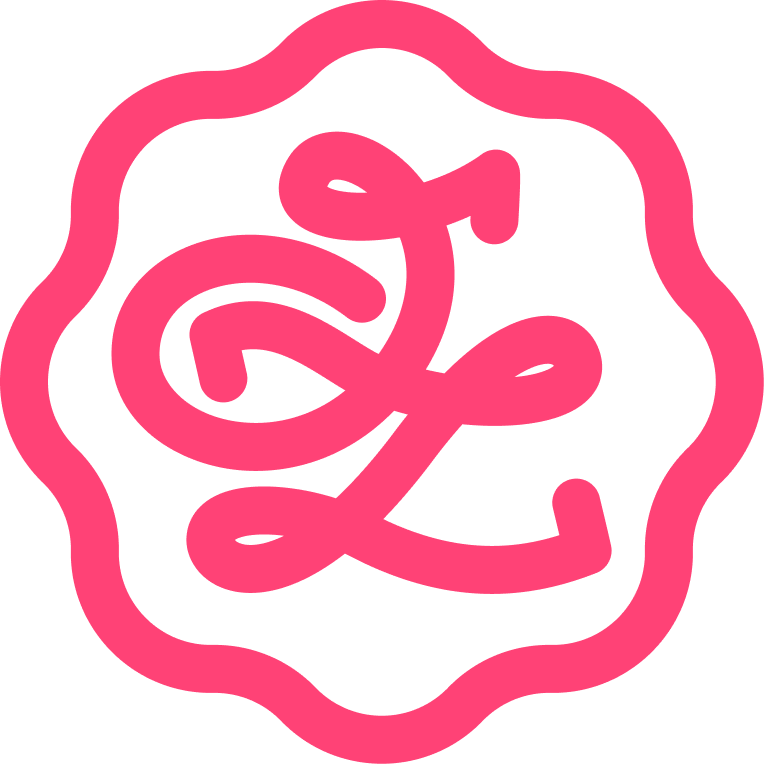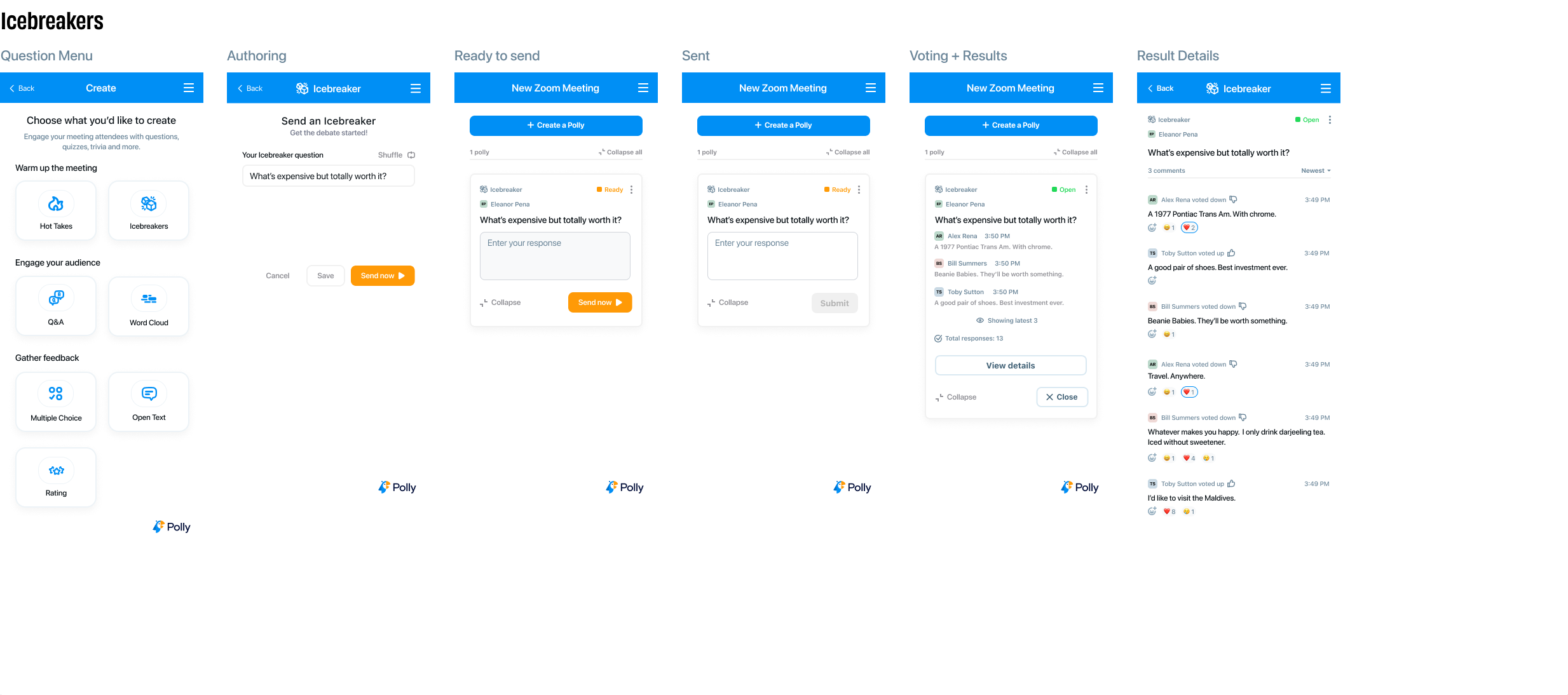
Polly + Zoom Apps Launch
Summary: As a partner in the 2021 Zoom Apps™ launch, Polly created a lightweight but powerful version of the Polly app, uniquely suited for the Zoom platform.
Deliverables: Wireframes, comps, prototypes

Exploring the space
With Zoom as our launch partner, we had early access to documentation of available surfaces and scopes to leverage for the Polly for Zoom MVP. This information was crucial in shaping our initial ideas for what we could build on the platform. To ensure we best met the Zoom user needs, we analyzed our similar product, already widely used on MSFT Teams Meetings. Based on these data, we were able to refine our feature list to optimal functionality for this MVP launch.
Usage data that helped inform MVP requirements for the Polly for Zoom app
Sketching out the experience
In the process of better understanding how Polly UI could best serve users in Zoom meetings, I did a lot of rough sketching to explore some of the early directions. The app surface was confined to a slim sidebar to the right of the meeting window, so there was limited real estate to work with. We needed to keep the application tight and clean with limited depth so that users wouldn’t get lost with a minimal viewport in the applications.
A few of my sketches from early exploration on this project
With limited real estate, I explored minimizing and aggregating the polly card information feedback to the most important information users would need. The cards are the core interaction space for both the creator and the audience, and these personas diverge in what they care about depending on the content and context of the polly. I did a lot of mapping of the different properties needed based on these variables: persona view, states of the question card, and the settings of the polly card. These exercises led me down a previously undiscovered path of object-oriented design thinking (OOUX). I found it to be an excellent framework for organizing this system, and I’ve since incorporated it into my design process toolkit.
Snapshot of OOUX object mapping of polly question types
Example of object properties translated into UI system feedback
Shaping thing up
Working closely with Masna Bin Umeed, my design counterpart, we developed a small but mighty component library around the components needed for the application. We then used this library to generate the screens for both creator and audience interactions of each polly type that would be included in our MVP launch.
Playing with the pieces
Alongside this work, I built out a number of prototypes to help us resolve the in-meeting interactions when using the Polly app. Here’s an early example exploring multi-polly deployment interactions. To interact with the prototype click on the
🚀 Send it!
After approximately 12 weeks of development, with rounds of reviews, bug bashing, and QA redlining, we called it good for the MVP. Zoom ended up delaying the Zoom Apps release, so we were able to add on a number of nice to-haves in time for launch day. Check out the final app below!
Check out the app live!
Note: You’ll need to load the Polly app in an active meeting to take it for a test drive. No need for guests, but it might feel lonely.
Final thoughts
The successful launch of the Zoom app marked a significant landmark in Polly's product journey, expanding our reach and impact on a new platform within the remote first collaboration space. The Polly for Zoom app is still one of the most popular apps in the Zoom marketplace and has become an essential part of the product for our GTM and Sales strategies.













